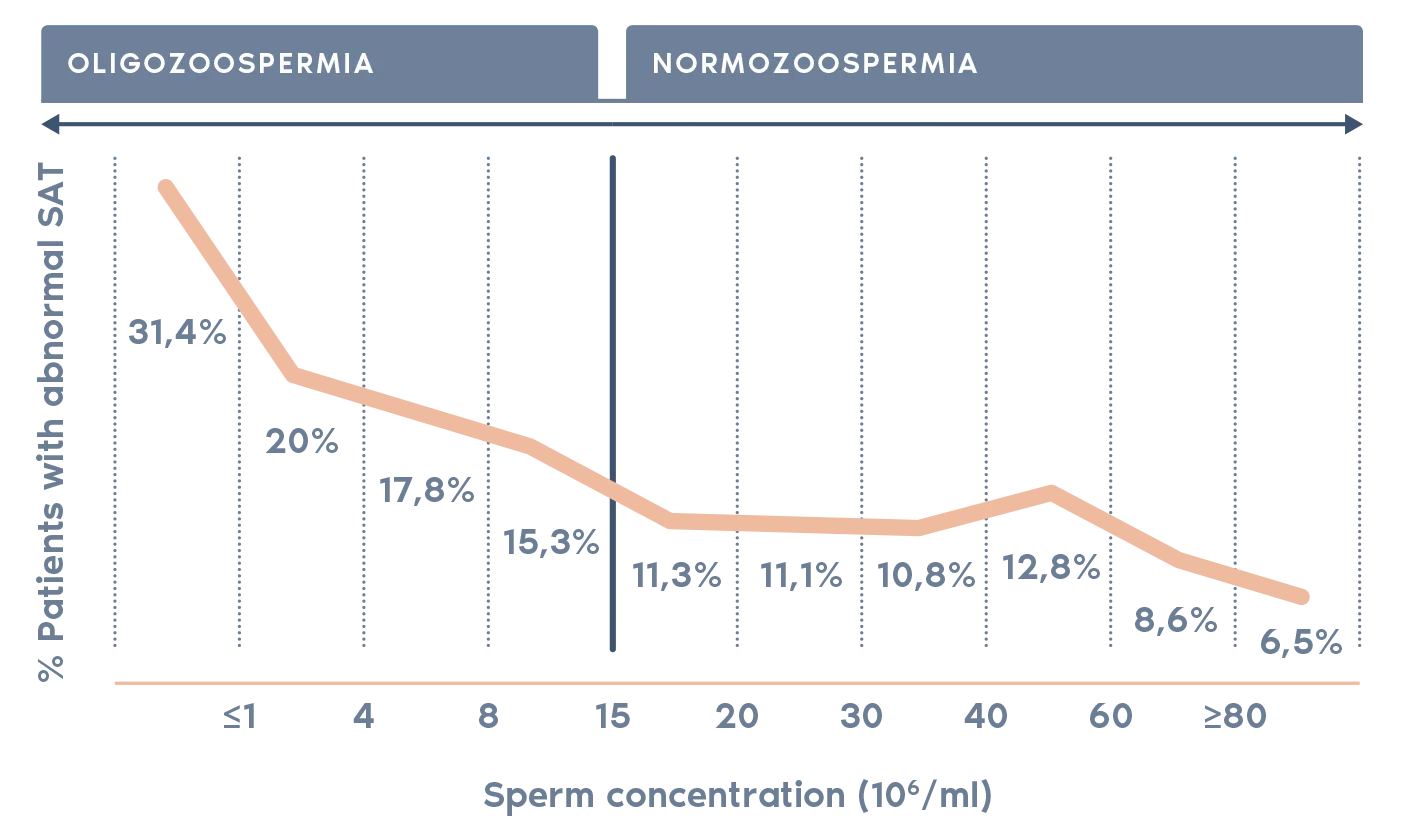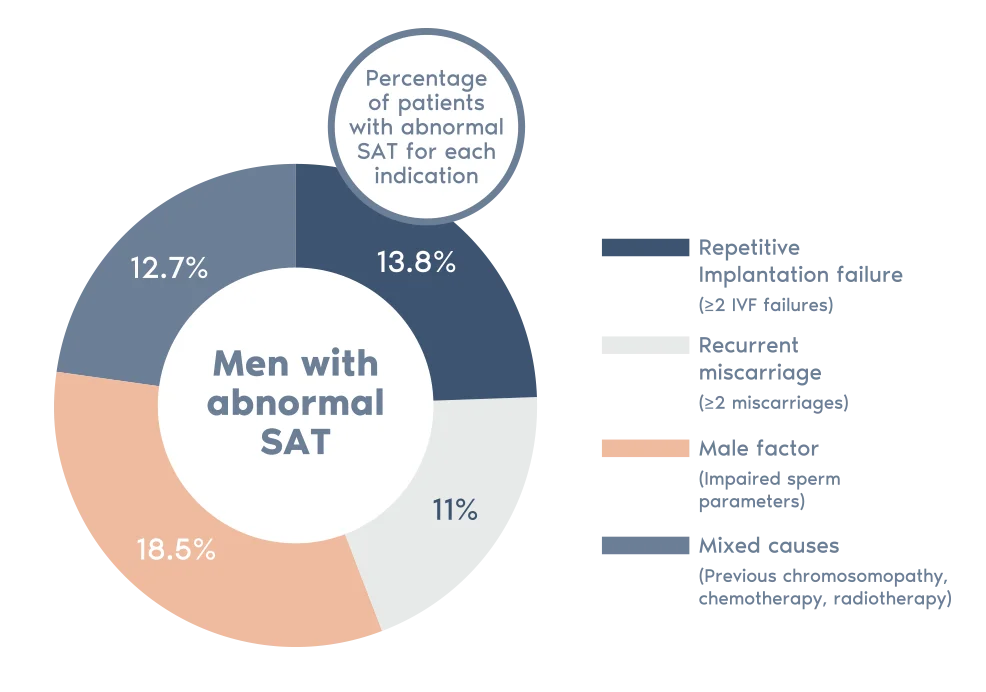labneticspakistan.com
Llabnetics Pakistan
SAT Sperm aneuploidy test
Analysis of chromosomal abnormalities in sperm

Up to 60% of pregnancies miscarry due to sperm chromosomal abnormalities

Results in two weeks

SAT provides personalized genetic counseling to the infertile couple before an IVF treatment

2,000 spermatozoon analyzed for each chromosome
What is SAT test?
> The Sperm Aneuploidy Test (SAT) is a test to study the genetic factor of male infertility.
> It allows for the evaluation of the presence of an abnormal number of chromosomes (aneuploidy and diploidy) in the sperm.
> The chromosomes 13, 18, 21, X and Y, are most frequently implicated in spontaneous miscarriages and affected offspring with chromosomal abnormalities. In SAT, these chromosomes are analysed by fluorescence in situ hybridization (FISH).
What is the procedure?

Why should use SAT test?
An increase of sperm chromosomal abnormalities affects your reproductive journey at three levels:
EMBRYO LEVEL:
> Spermatozoa with sex chromosome abnormalities results in aneuploid embryos
> Diploid sperm results in triploid embryos
PREGNANCY LEVEL:
> An altered SAT decreases pregnancy rate after ICSI and increases miscarriage rate
OFFSPRING LEVEL:
> Sperm chromosomal abnormalities increase the risk of abnormal offspring for the chromosomes affected in the sperm (Down, Klinefelter or Turner’s Syndromes)

Who should use SAT test?
> Men with a low sperm concentration, who typically have a higher incidence of sperm chromosome abnormalities
> Couples who have suffered recurrent miscarriage of unknown origin
> Couples who have experienced repeated implantation failure
> Couples with a previous pregnancy with a chromosomal abnormality

Test limitations
> This technique allows the detection of aneuploidy only for the chromosomes included in the test (13, 18, 21, X and Y).
> In very few ejaculated samples or testicular samples, there is not enough spermatozoa for a proper estimation of the risk of aneuploidy.